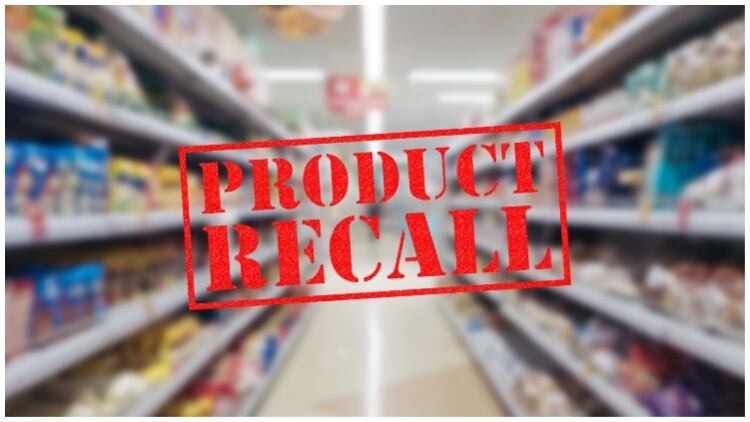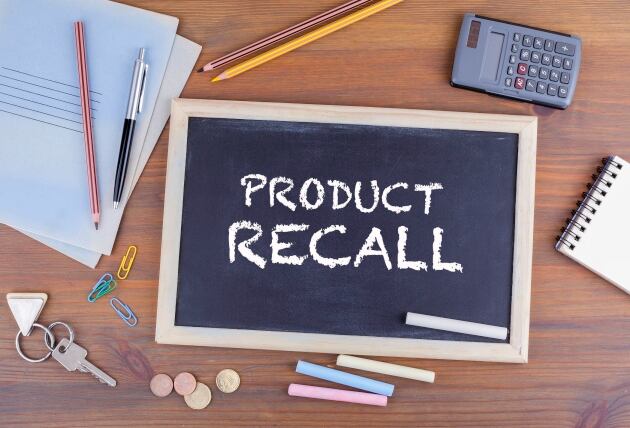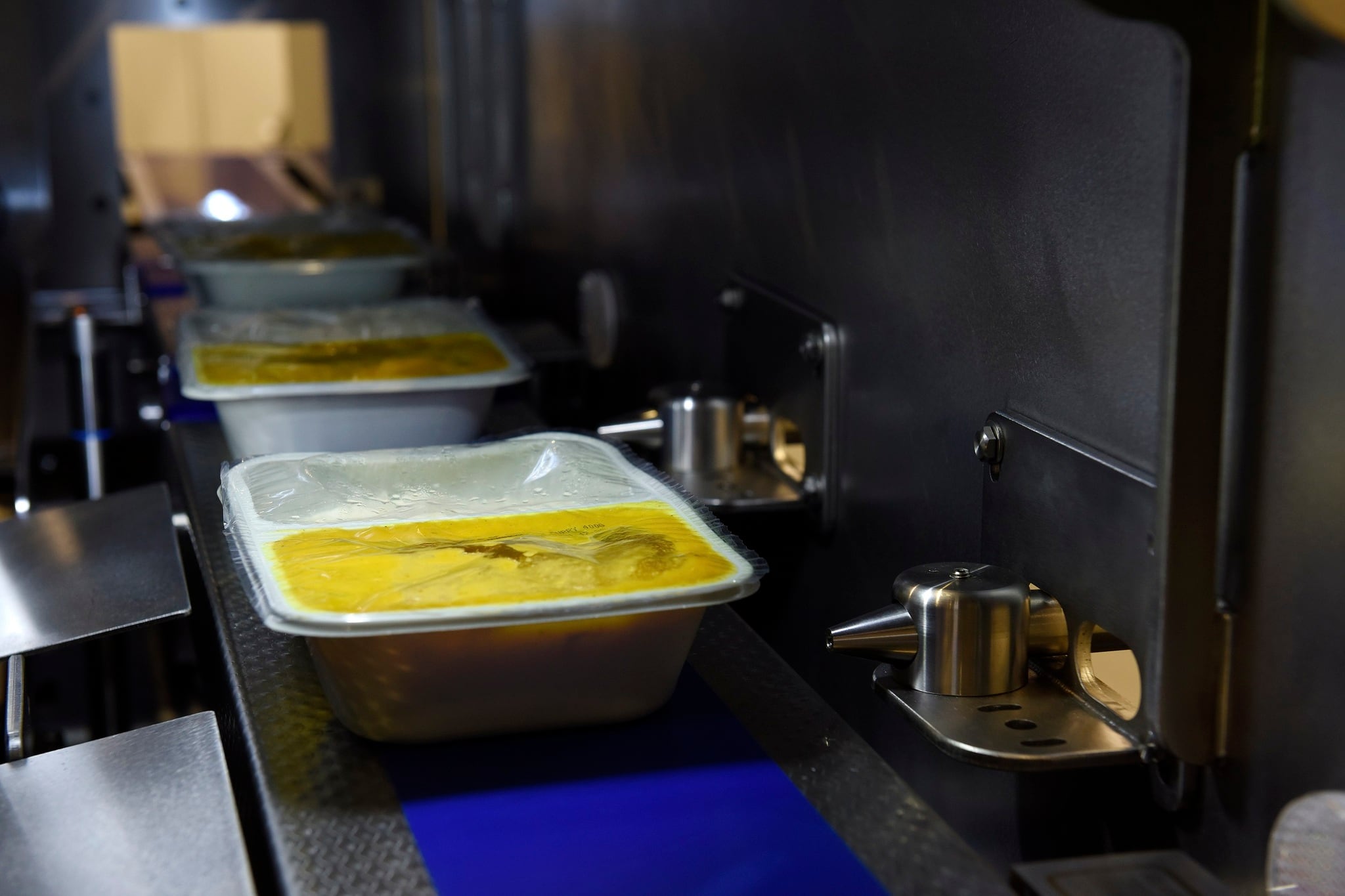Food recalls are the largest threat to a brand’s profitability and reputation and recent data suggests that recalls are increasing at a staggering rate. In the United States, data from the Food & Drug Administration (FDA) indicates a 700% rise in recalls in 2022, with undeclared allergens as the leading cause for the last five years. The UK’s Food Safety Standards Agency (FSA) reported a similar trend, with undeclared allergens responsible for 84 of the 150 recalls last year. Salmonella, Listeria and foreign body contamination are the other major causes.
With increasing consumer awareness, an evolving regulatory landscape and growing supply chain complexity, it’s more critical than ever for the food industry to be prepared for a food recall. Companies must have a robust recall plan to mitigate the risks associated with a recall and ensure they can respond quickly and effectively to protect their consumers and brand.
Each key player in your business must be trained and confident in your recall processes to help keep the organisational focus on making sound decisions should the worst happen in your food business.
Here are six critical steps to prepare you to respond quickly and effectively in a food crisis:
1. Identify and evaluate the risks
Product recalls are caused by three main reasons: safety issues, legal compliance concerns and risk to brand reputation. As part of your quality management system to ensure the production of safe, legal products of the right quality, companies should conduct a thorough risk assessment of their food products, including the ingredients, processing, packaging and distribution methods. The assessment should identify potential sources of contamination or other hazards that could lead to a recall.
You should also consider the likelihood and severity of harm to consumers in the event of a recall. A robust quality management system, including HACCP (hazard analysis and critical control points), VACCP (vulnerability assessment and critical control points) and TACCP (threat assessment and critical control points), is the best prevention to mitigate the risk of a product recall.
2. Develop a recall plan
The next step is to develop a recall plan once the potential risks have been identified and mapped. The recall plan should include a step-by-step process for handling a recall, including identifying the recall trigger, identifying and locating affected stock, containing any affected stock still within your control, notifying relevant authorities, and communicating with customers and the media. The plan should also outline the responsibilities of each department and employee involved in the recall process, including designating a recall team and a recall coordinator. Your recall plan should include routes to market so that in the event of a product recall, you can quickly identify and inform customers of the issue as it develops. As the industry increasingly aims to reduce food waste, it is important to pay particular attention to inter-company transfers, exports and any donations to food banks and charities.
3. Train employees
All employees should be trained on your company's recall plan and their roles and responsibilities during a recall. Successfully managing a product recall relies on teamwork and should ensure that deputies also understand their role and pay attention to the team members who support the process. This is because terminology, for example, can be unfamiliar to those not involved in product management on a day-to-day basis. Training should be provided regularly to ensure employees are updated on the latest procedures and can respond quickly and effectively during a recall.
4. Conduct mock recalls
One of the most valuable exercises you can do is to conduct mock recalls to test the effectiveness of your recall plan and identify any weaknesses or areas for improvement. By performing these regularly, you ensure that the plan remains up-to-date and that your employees know their roles and responsibilities. Make the exercise as realistic as possible to gain the most value. You can do this by minimising the number of people who know the scenario in advance. Consider using a facilitator to guide the team through the exercise, with information updates given at timed intervals and challenges, such as media requests for information to test the team.

One key to successfully navigating a product recall is understanding the impact external factors such as supplier input and authority intervention can have on the decision-making process. The more realistic the exercise is, the better prepared you are. When conducting these exercises with our clients, we’ve often found that areas such as considerations for remote operations, access to internal systems, or hard copy backups of key information are often overlooked. Flip charts or whiteboards in key situation rooms also help you better track and visualise the recall situation.
5. Establish communication protocols
Effective communication is essential during a recall. Companies should establish communication protocols that include notifying relevant authorities, customers and the media about the recall. The communication protocols should also include how the company handles inquiries and provides updates throughout the recall process. It is important to ensure that any communication is as accurate as possible. If you are waiting for further information, explain that and say when you will next update. Remember that communication to consumers may need to be phrased differently than that for industry customers.
6. Continuously review and update the plan
You can ensure your recall plan remains effective by continuously reviewing and updating it. Ensure you identify any changes in your company's operations or regulatory requirements that may affect the plan. Some incidents will not lead to a product recall, and they may be considered a ‘near miss’ where a product does not leave the business, or can be withdrawn from the market before being placed on public sale.
In combination with learnings from a product recall or recall exercises, these are the opportunities to review the plan and look for modifications to improve the recall plan. Also, ensure that you maintain detailed records of your recall plan, comprising all actions taken during a recall, including mock ones.
In summary
Nobody expects a food recall, but being proactive, well-prepared and confident in the process can significantly mitigate the risks and minimise the impact if it does happen to you. Remember, a food recall doesn't have to be a chaotic and overwhelming crisis. By investing time and resources in risk evaluation, detailed planning and mock recall exercises, you build a solid foundation of preparedness. This empowers you to navigate a recall situation smoothly, instils confidence in your plan, and enables you to respond quickly and effectively, ultimately playing a vital role in safeguarding your brand's reputation and, most importantly, protecting the well-being of your consumers.
You may also be interested in reading the findings of Food Manufacture's recent roundtable with Alan Littlechild (Mars Wrigley), Celina To (Oxford Nanopore Technologies) and Eric Brown (FDA) on the world of genomics and how it could be used in contamination incident management.




